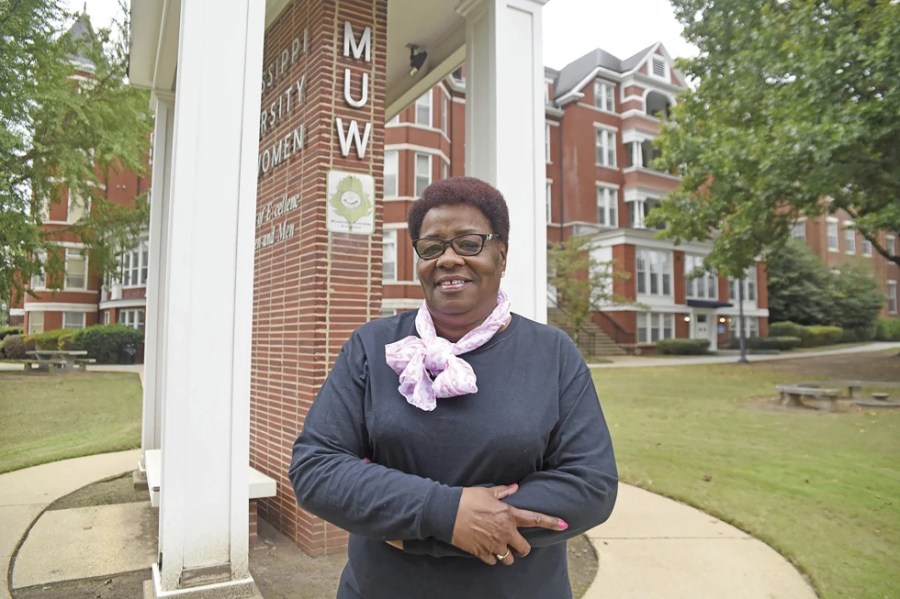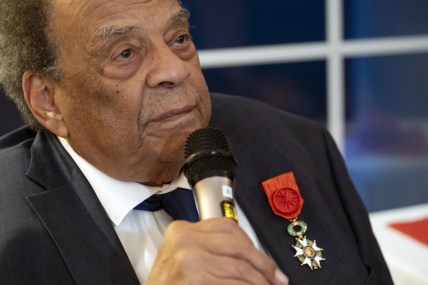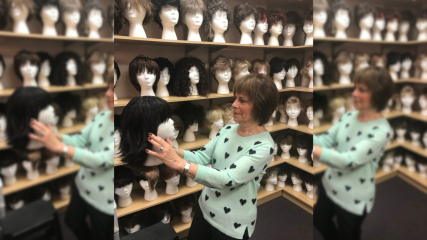Mississippi University for Women honors first Black students with historical marker
“I know they have absolutely no idea of what it was like almost 60 years ago,” Laverne Greene-Leech says
COLUMBUS, Miss. (AP) — In the spring of 1966, Laverne Greene-Leech, along with her best friend, Diane Hardy, and Barbara Turner Bankhead had just graduated from Hunt High School, where Black students attended the segregated school system in Columbus, Mississippi.
That fall, the three 17-year-olds arrived at the Mississippi State College for Women, along with three graduate students — Mary Flowers, Jacqueline Edwards and Eula Houser — as the school’s first Black students.
On Thursday, the state unveiled a historical marker on the campus, now known as the Mississippi University for Women, honoring their journey. It was placed in Pioneers Plaza, beside Carrier Chapel during a ceremony. The marker is the result of a collaboration between the History Department at MUW and Chuck Yarborough’s history class at Mississippi School for Mathematics and Science.

Greene-Leech said she and her friends never set out to make history, The Dispatch reported.
“We just wanted an education,” she said.
Greene-Leech’s plan was to go to Mississippi Valley State, one of Mississippi’s three historically black colleges and universities. Hardy, however, planned to apply to MSCW “just to see their reaction,” Greene-Leech recalled. She and Turner decided to apply also, as a show of support for their friend. She said her parents weren’t too excited about that decision.
“They didn’t think it was a good idea,” she said. “They were afraid for me. But they said, ‘If this is what you want to do, we’ll stand behind you.’”
It didn’t take long for the girls to understand where they fit into campus life, which was nowhere really.
“Students then were required to live on campus, but they told us there was no place for us to stay, so we went back and forth from home,” Greene-Leech said. “They had a cafeteria, but we weren’t allowed to eat there. We had to move off the sidewalks to let the white student pass.”
The social clubs that almost every student was a part of were off limits to them, as well.
Greene-Leech said there were a few white students who were accepting, but it was a handful of teachers who made The W tolerable, at least for a while.
The mental and emotional stress took its toll. Greene-Leech left The W after the first semester of her sophomore year.
“It was just too much,” she said.

In 1973, she returned, but left again without finishing her degree. Greene-Leech went to work after that year, eventually landing at the Lowndes County School District, where she worked for 32 years, first as a library assistant, but for most of her career as the district’s media director.
Greene-Leech said she didn’t give The W much thought for years.
Slowly, though, she began to notice things changing. Gertrude Lewis and Marjorie Carter became The W’s first Black faculty members in 1970, and Black enrollment built steadily over the years. Male students joined the study body in the ’80s.
“When I saw Black students and Black faculty members and later, the boys, I knew it was finally a school for all people,” she said. “That was when I was proud of The W and the part we played in it becoming what it is today.”
When she heard about plans to put up a historical marker, she said, she shed tears of joy.
“I was happy that we did play a little part in the story. I cried because I look at the institution and see what it has become,” Greene-Leech said.
Her only regret is that her lifelong friend Hardy will not be present for the ceremony. Hardy died in 2013.
Still, she said she’s eager to attend the ceremony and is especially excited to meet and talk to the students, many of whom are the same age she was in the fall of ’66.
“I know they have absolutely no idea of what it was like almost 60 years ago,” she said. “It really touches me, what they did with this. It brought me to tears.”
TheGrio is FREE on your TV via Apple TV, Amazon Fire, Roku and Android TV. Also, please download theGrio mobile apps today!


